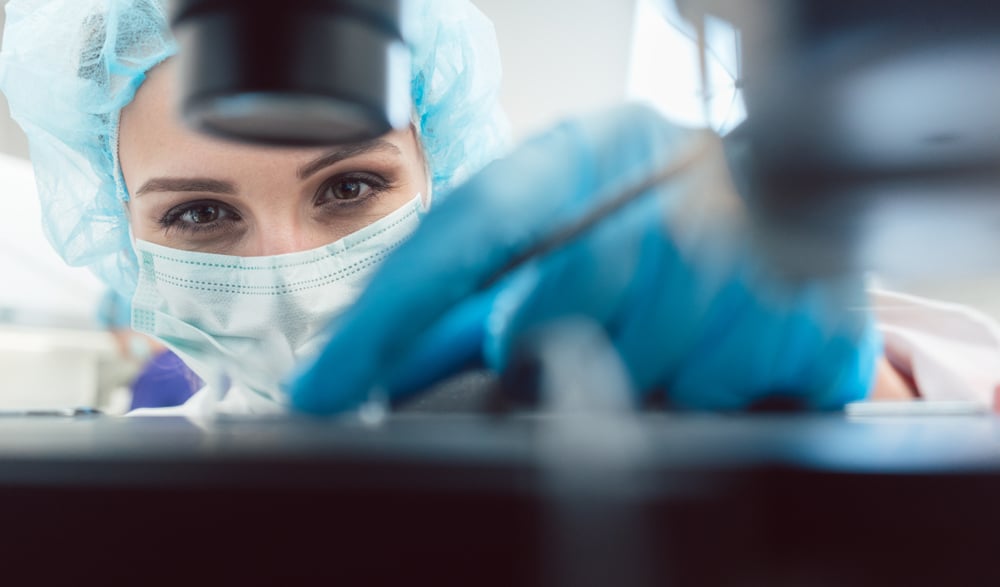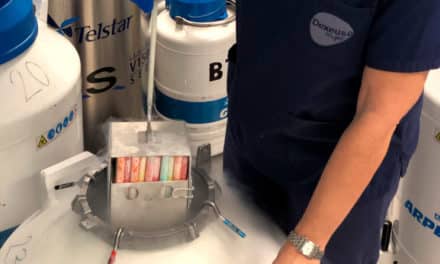GUIDE FOR ASSISTED REPRODUCTION PATIENTS DURING THE PANDEMIC
A few days ago, the Spanish Ministry of Health has given the green light to the restart of activity in assisted reproduction centers. This is great news, especially if you had to interrupt your treatment due to the pandemic. But, obviously, the current situation is going to make things change a bit, since it requires establishing a series of security and preventive measures to minimize any risk. If this is your case, and you are wondering what changes have been introduced or what you should do, in this post we offer you a little information.
First of all, you do not need to worry, the procedures are perfectly established, at Dexeus Mujer we have implemented all the security measures indicated by the official authorities and scientific societies. In addition, and during the state of alarm, our team has visited daily our laboratories to check the proper functioning of the facilities and equipment – with special attention to incubators and liquid nitrogen tanks where we store oocytes, sperm and cryopreserved embryos¬, and ensure that everything was ready to start the activity again when possible. In any case, in our center we have a telemetry system that allows us to monitor and record both temperatures and liquid nitrogen levels permanently 24 hours a day.
In addition, visits are scheduled in a very controlled way, to limit their number and facilitate the maintenance of security recommended distance. Our medical team has also been reorganized into smaller groups to avoid unnecessary interactions, and hygiene measures have been extreme in all rooms and spaces, as well as individual protection measures for personnel. This means that in the wards there will not be a massive influx of patients and that all prevention protocols are in place.
Regarding the development of the visit and the entire process, we summarize some key aspects:
- Previous medical evaluation. You should know that before starting any treatment, the medical team must assess whether it can be done or if it is better to postpone it. In both cases, you will be previously informed of the risks that the infection may incur during the process and of the steps that will be followed in that case, so that you can assess the situation and give your consent as you agree to start treatment. . This measure is essential.
- Patient commitment. Likewise, and on your part, a commitment is necessary, so that, if you have any symptoms associated with the infection or have been exposed to any risky situation, you must inform the medical team, as well as regularly confirm your good health.
- Will I be tested for COVID-19 before starting treatment? In all cases, the PCR test, which is currently the most reliable test for the diagnosis of COVID-19, will be applied before carrying out a puncture for oocyte retrieval or cryotransference. This test requires an analysis in the laboratory, and therefore the results are not obtained until 24 hours later (therefore, it must always be performed before the scheduled date for the intervention).
- Limitation of face-to-face visits. In order to minimize risks, scientific societies and authorities recommend that all visits and consultations that do not require a physical presence be made through videoconferences or by phone.
- Can I be accompanied? Accompanying persons are not allowed on visits. Instead, an accompanying person is allowed on oocytes punctures and embryo transfers.
- What special measures will I have to take if I follow a treatment? To prevent infection during pregnancy, you will be informed that in addition to the general measures of washing your hands frequently, wear a mask and gloves during outdoor trips, do not touch your eyes, nose or mouth and use disposable tissues, you should avoid crowds and the use of public transport, social relations and displacements that are not strictly necessary.
- If I get the infection during the process, what will happen to my frozen oocytes or embryos? Cryotransfer will be deferred and potentially infectious biological material will be stored in high-security nitrogen vapor tanks and / or freezing straws. Its subsequent use will have to be assessed according to the established protocols.
These measures summarize, in general, the current official recommendations. However, it is very important to highlight that they may change depending on the evolution of the knowledge that we have about the virus that causes the pandemic.
We hope this information will be useful to you, but do not doubt to consult our medical team with your questions when you need it through the videoconference service.
Remember: the most important thing is that you are and feel well informed and safe before taking any step, so call us whenever you need it
Cheers to everyone!













